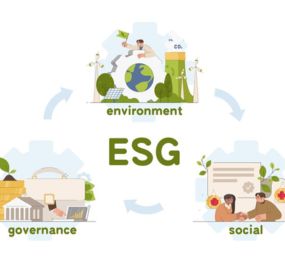ESG metrics play a crucial role in quantifying environmental impact and assessing corporate sustainability. By providing standardized measures of environmental performance, ESG metrics enable companies to track progress, set targets, and communicate their efforts to stakeholders effectively.
One of the most important environmental metrics used in ESG reporting is the carbon footprint, which measures the total greenhouse gas emissions associated with a company's operations, products, and services. By calculating their carbon footprint, companies can identify emission hotspots, prioritize emission reduction efforts, and demonstrate their commitment to combating climate change.
Water usage is another key environmental metric used in ESG reporting, particularly in industries with high water consumption, such as agriculture, manufacturing, and utilities. By measuring water usage and implementing water conservation measures, companies can reduce their environmental impact, conserve valuable resources, and enhance their sustainability performance.
Waste management is also an essential environmental metric used in ESG reporting, reflecting a company's efforts to minimize waste generation, promote recycling and reuse, and reduce landfill disposal. By implementing waste reduction strategies and adopting circular economy principles, companies can reduce their environmental footprint and contribute to a more sustainable future.
Renewable energy usage is increasingly becoming a prominent environmental metric in ESG reporting, reflecting a company's commitment to transitioning to clean energy sources and reducing reliance on fossil fuels. By investing in renewable energy technologies and purchasing renewable energy certificates, companies can lower their carbon emissions, mitigate climate risk, and enhance their sustainability credentials.
In conclusion, ESG metrics are essential tools for measuring environmental impact and assessing corporate sustainability. By quantifying key environmental indicators such as carbon footprint, water usage, waste management, and renewable energy usage, companies can track their progress, set targets, and demonstrate their commitment to environmental stewardship and responsible business practices.
To register or learn more about the Forum please check here: https://www.leadventgrp.com/events/world-esg-and-climate-summit/details
For more information and group participation, contact us: [email protected]
















